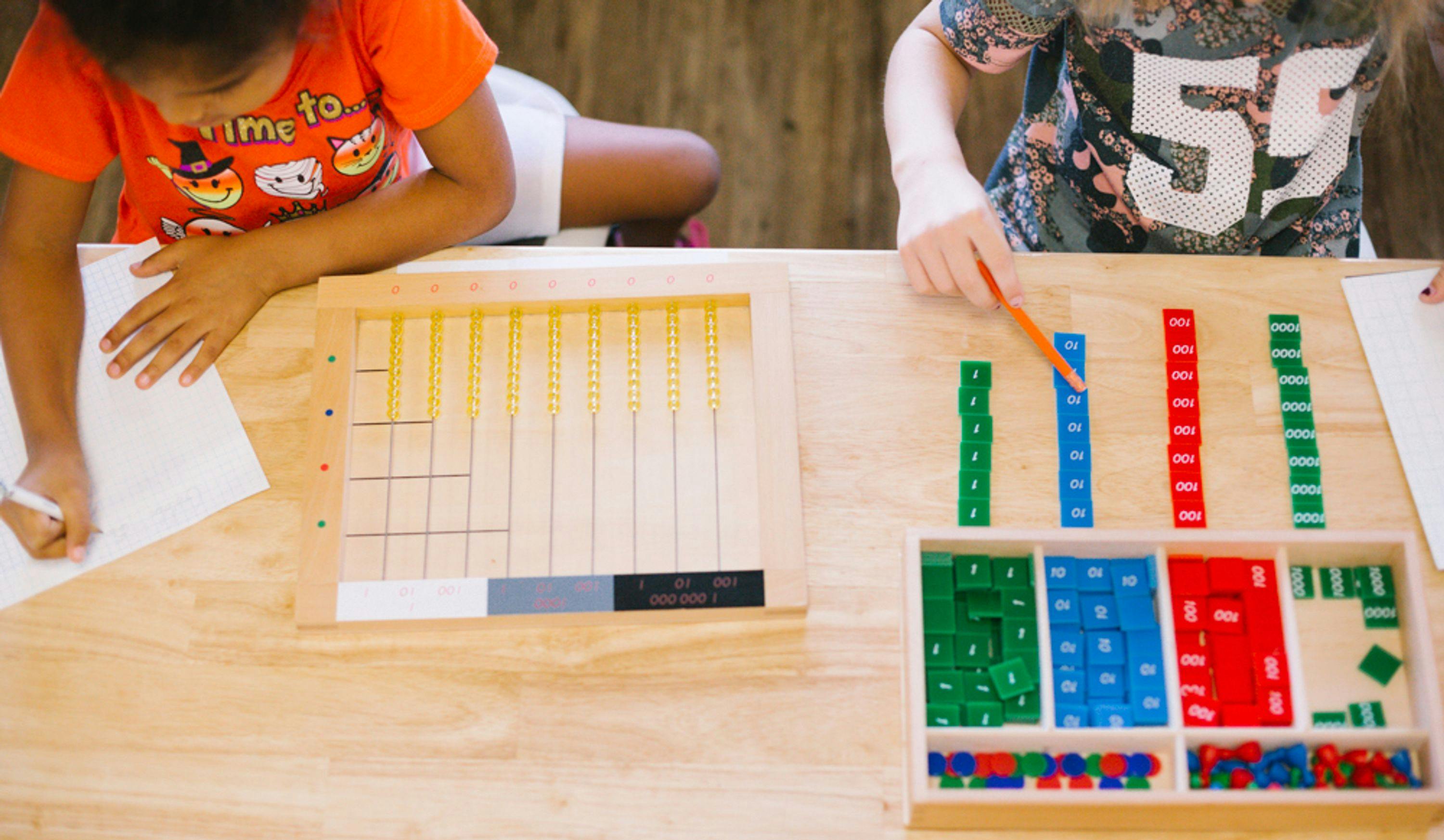Supporting Elementary at Home: How To Engage in Your Child’s Learning
Support your child outside of school by incorporating learning in the work of the home and family
The Guidepost Team
Montessori schools don’t give homework? How radical! It is such an accepted part of school culture that the idea may, at first, create unease. However, this approach is in alignment with current research on elementary education, though it is outside the norm of traditional schooling.
For parents of elementary children who want a window into their child’s learning and to support their child’s development at home, there are still countless ways to do that. There is an enormous body of evidence that suggests homework at the elementary level does not contribute to measures of academic progress, and worse, can be counterproductive. Homework often leads to frustration, exhaustion, erodes a love of learning, and creates an unpleasant dynamic between parents and children. It also takes away from time for exercise, recreation, family togetherness, and recharging. Just as adults need time to decompress after a work day, so do children.
Montessori learning
In many traditional classrooms, a teacher introduces a topic in math, for example, demonstrates a few problems, has the child attempt several problems and then the bulk of the practice takes place at home. In Montessori, the child’s repetition takes place at school with the aid of materials to help reinforce abstract ideas. Many of those materials offer self-correction, so a child can see whether he is off track. Children are also shown how to check their own work and to collaborate with others to compare answers.
In Montessori, children can follow up on a lesson immediately for as long as a work cycle will allow. Then later they can return to it to solidify the concept and to experience the joy of pursuing an interest. They have the freedom to pace their learning if they need more practice or to ask for the next lesson if they feel they are ready. After such concentration and effort during the school day, time at home can be spent on other pursuits, participating in family life and connecting with each other.
Rather than homework, include your child in the work of the home! Here are ways you can support your elementary child outside of school and enrich their experience:
- Take your child with you to the grocery store! Get children involved in meal planning. Your child can find the ingredients for a recipe. There is an enormous amount of math and chemistry in baking; think about measuring and mixing ingredients. Children can stock up on items they need to make their own school lunches. Show them how to examine unit prices to comparison shop.
- Gardening is an activity you can do with your child before he or she is in elementary, but children can be more involved in planning a garden as they get older and can investigate seasonal considerations. Plant an herb garden or a vegetable garden with your child, and incorporate the harvest into your meals.
- Elementary-age children can do their own laundry, fold it, and put it away afterward. In addition to the obvious household benefits, it offers children more independence in choosing their clothing because they have control over whether their favorite item is clean.
- Setting the table as well as clearing and washing dishes are also meaningful ways your child can contribute to the family. It can also serve the dual purpose of being an opportunity to catch up on details of the day.
- Once a child has learned to read, fostering a love of reading at home is one of the best ways to support intellectual development. Being a reader yourself and modeling this interest is beneficial for your child. Plan regular trips to the library or bookstore. Set aside time during the day for your family to read. You can even form a family book club or establish one for the children in your neighborhood! We often read to children when they are young, but older children still enjoy read aloud sessions with a parent. You can take turns reading aloud, too!
- If you are eager for something else in the academic realm, one way you can support math skills development at home is by practicing math facts (e.g., multiplication tables), particularly if that is something children are still working on in the last half of elementary. Math work at the point often relies on recognizing patterns. Be sure to incorporate joy and movement into this, and take breaks if frustration surfaces. Many children enjoy doing this kind of practice through song or card games. If art is appealing for your child, make flashcards! Children can test themselves, or practice with a parent or sibling. Let your child take the lead. Keep it light and entertaining, or try again in a few days!
- What kinds of cultural offerings does your city or town have? A visit to a museum, zoo or historic site can provide wonderful enrichment. It may be an extension of a research topic your child is delving into in class, or it may inspire one in the future!
The Guidepost Team
The Guidepost Team is a group of writers and educators dedicated to helping demystify all things Montessori.
Sign up for our newsletter
Get started with our community today! Sign up for resources.
